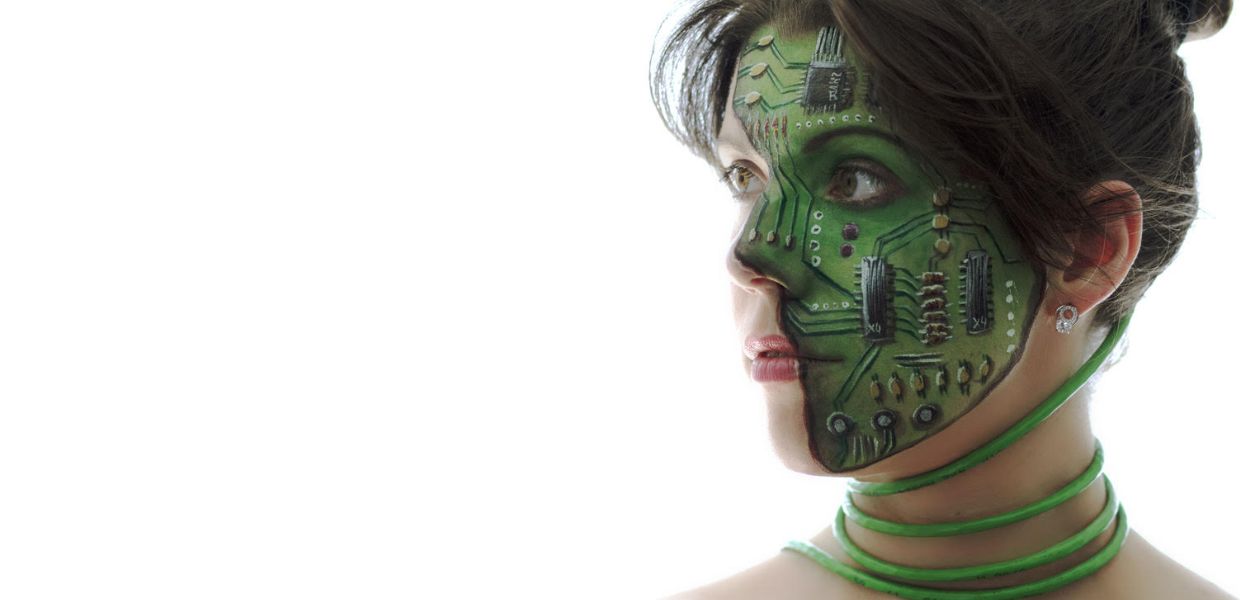Meet Technoculture’s Federica Bressan - Europeana Communicators’ Solve-It-Session speaker #1
On Friday 13 September at 10:00 CEST, Europeana Communicators, a specialist community of the Europeana Network Association, presents a ‘Solve-It Session’ on digital storytelling. This hour-long webinar helps participants promote digital cultural heritage by sharing knowledge, tools and best practices. Today, we meet one of the session’s speakers - Federica Bressan, an academic researcher and the power behind the Technoculture podcast.

- Title:
- Federica Bressan
- Creator:
- Federica Bressan
- Date:
- 2018
- Country:
- Italy
- Copyright:
- CC BY-SA
What is Technoculture?
Technoculture is a series of one-on-one conversations with experts in the fields of technology, art, and science. Together we explore how digital technology influences our lives, our experiences, and ultimately what it means to be human today.
I see the podcast as a platform to foster an intelligent discussion around topics that concern our contemporary society. There is a demand for sophisticated content: mainstream media seem to assume that the audience has a very short attention span, but actually, there is a hunger for long-format discussions on complex themes.
The first episode of Technoculture was released on 28 October 2018, the international day of cultural heritage, and there are 32 episodes out to date and is available on iTunes, Spotify, YouTube, and all major platforms.
How did you get into podcasting?
In 2017-2018, I was travelling world-wide for my Marie Curie research project. I was meeting people from all walks of life with whom I was having fascinating discussions. Some were so interesting I thought it was a shame I couldn’t share them with the world.
At the same time, I was an avid podcast listener, and I spent a few months contemplating how we’re rediscovering the power of the spoken word. With a podcast, your words reach very far instantly through the internet, but they are also persistent like the written word used to be. You can play the audio back on your personal device, anytime, anywhere, while you’re commuting or doing chores. There’s something powerful and unprecedented about this way of circulating knowledge.
So after caressing the idea for a while, I decided to go for it and start my own podcast. I already knew what I wanted to talk about and who I wanted to interview. It was a matter of learning how to actually produce a podcast. I won’t say it’s been easy, but on the other side of the first season with 30+ episodes, I can say that it’s the best thing I’ve done in a long time.
Do you have any advice for would-be podcasters?
Think twice before you commit. You’ll be surprised by the amount of time and resources that it takes to produce your first podcast. We already have cemeteries of podcasts out there. Does the world need one more podcast? Maybe not. But if you have a vision about your podcast, if it’s calling you, and you have a spark in your eyes when you talk about it, then go for it. And have fun doing it.
Setting it up, getting on iTunes etc. is easier than I thought in the beginning, but it also takes more time than I thought. I take care of every step in the production of my podcast (except the mastering, outsourced to Federico Pelle of The Basement Group in Italy), and the task that takes the longest is editing the episode after the recording, even for me with a background in audio.
Finally, make it easy for people to find you – make your podcast available on every platform you can. And forget monetisation. Your podcast is your hobby.
Can you share some of the highlights of the series?
The highlight has to be Michael Matlosz, the President of EuroScience. This was the first episode I released. Talking to him set me a higher challenge, it raised the bar for the entire series.
I was very pleased to talk to Harry Verwayen to get to grips with Europeana – an ambitious project that has recently celebrated ten years of activity, and keeps leading the European cultural scene with original initiatives and events, bringing us citizens closer to our heritage. I am a huge fan of Europeana.
It was also a thrill to talk to world advocate on transhumanism, Zoltan Istvan. He’s been a National Geographic journalist, author, entrepreneur, and he ran for US president and governor of California.
With such diverse contributors, are there any common themes?
Rather than a theme, the podcast has an interest in exploring in 360 degrees the impact that digital technology has on our lives and our society. The common denominator is an interest in the Human, and how the experience of being in the world changes as new technology emerges, and people depend on and merge with machines.
As far as the guests, they all share a genuine passion for their topic, regardless of the field of specialization. Even if they talk about different aspects of digital tech, they all show a keen sensibility for how humans are impacted or engage with whatever it is they are experts in. The mission of the podcast is not just to explain frontier tech, but to tell the story of the people who make it, receive it, and conceptualise it.
We're delighted to have you present at the Europeana Communicators Solve-It-Session - what can we expect to hear from you then?
I think that podcasts are meant to be available as permanent resources and are part of an ongoing conversation - the storytelling must be long-term. In that context, I’ll introduce Technoculture and talk about some of the decisions I had to make, from the high-level goals and the choice of guests to the practical elements like the format, the length, and whether or not to include video. And disclose some new ideas for the upcoming second season...

